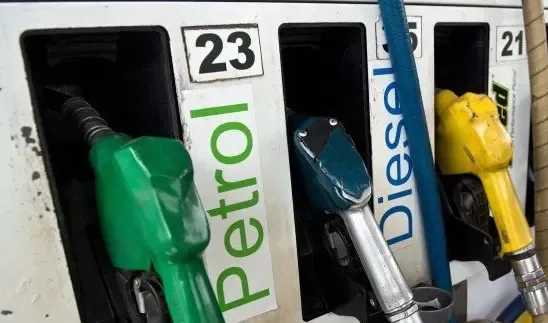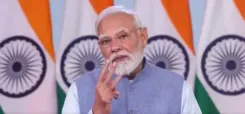Government Increases Excise Duty on Petrol and Diesel as Global Oil Prices Decline

Synopsis
Key Takeaways
- Excise duty raised by Rs 2 on petrol and diesel.
- No increase in retail fuel prices despite the duty hike.
- Global oil prices have dropped significantly.
- India's oil import bill is expected to decrease.
- Russia is now India's largest crude oil supplier.
New Delhi, April 7 (NationPress) The government has declared a rise in excise duty on petrol and diesel by Rs 2 per litre, effective from Tuesday. However, the retail prices for these fuels will remain unchanged due to a decline in global oil prices.
The reduction in crude oil prices will help oil refining and marketing companies, such as Indian Oil and Bharat Petroleum, lower their production costs and enhance their retail margins. This allows the government to increase revenue through an excise hike without imposing additional costs on consumers.
The Ministry of Petroleum and Natural Gas announced on X that the PSU Oil Marketing Companies have confirmed no retail price rise for petrol and diesel following today’s excise duty increase.
The excise duty on petrol is now set at Rs 13 per litre, while diesel is at Rs 10, according to the latest order.
This adjustment is aimed at increasing revenue as crude oil prices have plummeted to a four-year low in the international market, with benchmark Brent crude dropping to $63 a barrel—the lowest since April 2021—and the US West Texas Intermediate crude falling to $59.57. As the world’s third-largest crude importer, India stands to benefit from these reduced prices.
On Monday, oil prices continued to decline, dropping nearly 4 percent due to escalating trade tensions between the United States and China, raising recession fears which could decrease crude demand. The OPEC+ oil cartel has also opted to boost supply.
Brent futures fell by $2.43, or 3.7 percent, to $63.15 per barrel, while US West Texas Intermediate crude futures decreased by 3.9 percent to $59.57.
Saudi Arabia, the leading oil exporter globally, has reduced crude prices for Asian buyers by up to $2.3 per barrel for May deliveries.
This drop in oil prices is advantageous for the Indian economy, given that the country imports about 85 percent of its crude needs. A reduction in oil prices lowers the import bill, which helps in decreasing the current account deficit (CAD) and strengthening the rupee.
In addition to improving the external balance, lower oil prices lead to reduced costs for petrol, diesel, and LPG domestically, which helps mitigate inflation.
The government has also played a role in decreasing the oil import bill by permitting oil companies to purchase Russian crude at discounted rates, despite Western pressures following the Ukraine conflict. The Narendra Modi administration has remained steadfast in its relations with Russia, despite sanctions imposed by the US and Europe.
Russia has become the largest supplier of crude oil to India, surpassing Iraq and Saudi Arabia, which previously held the top position. In fact, India is now the largest buyer of Russia’s seaborne oil, which constitutes nearly 38 percent of India’s total oil imports.








